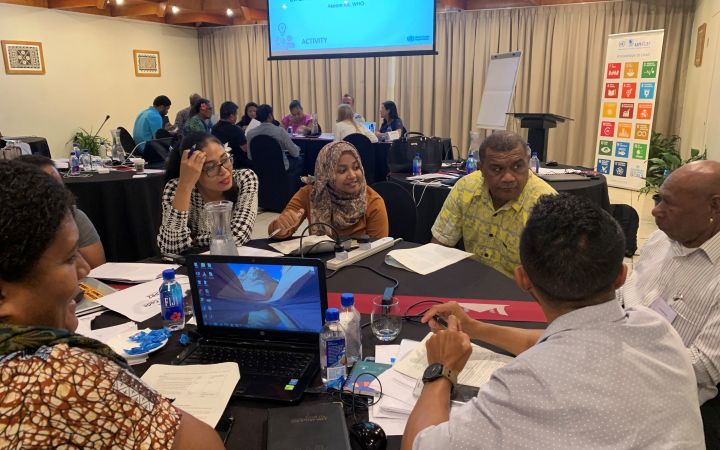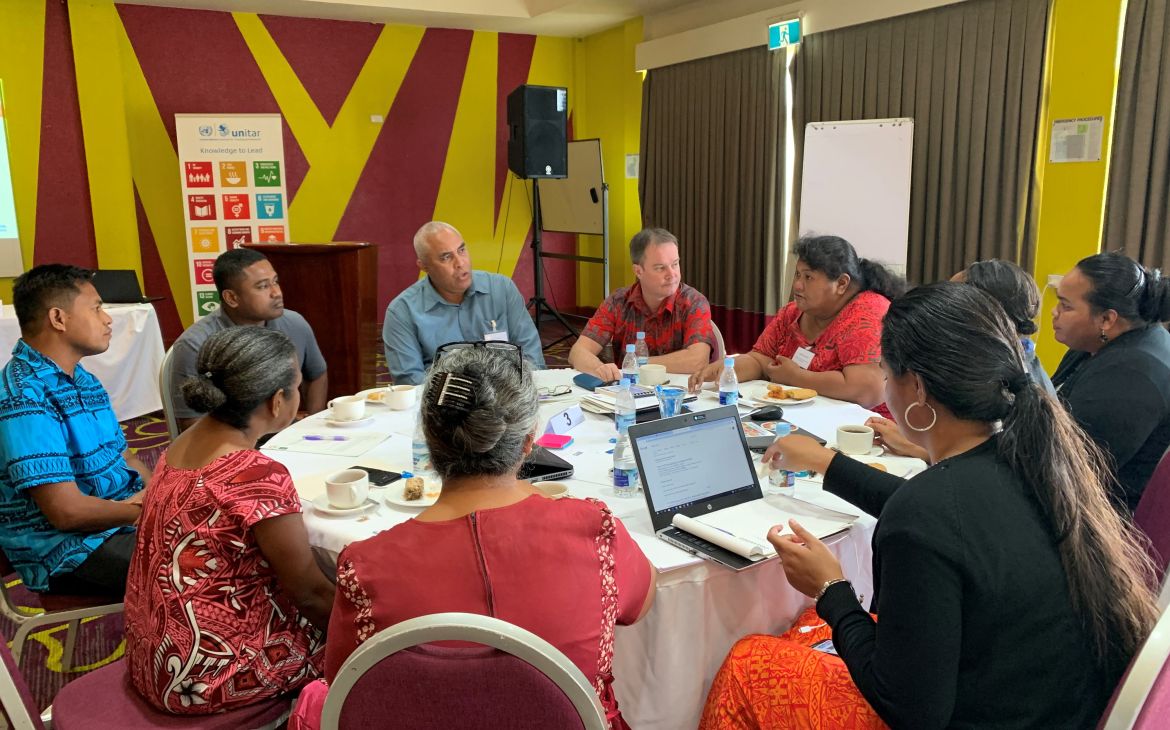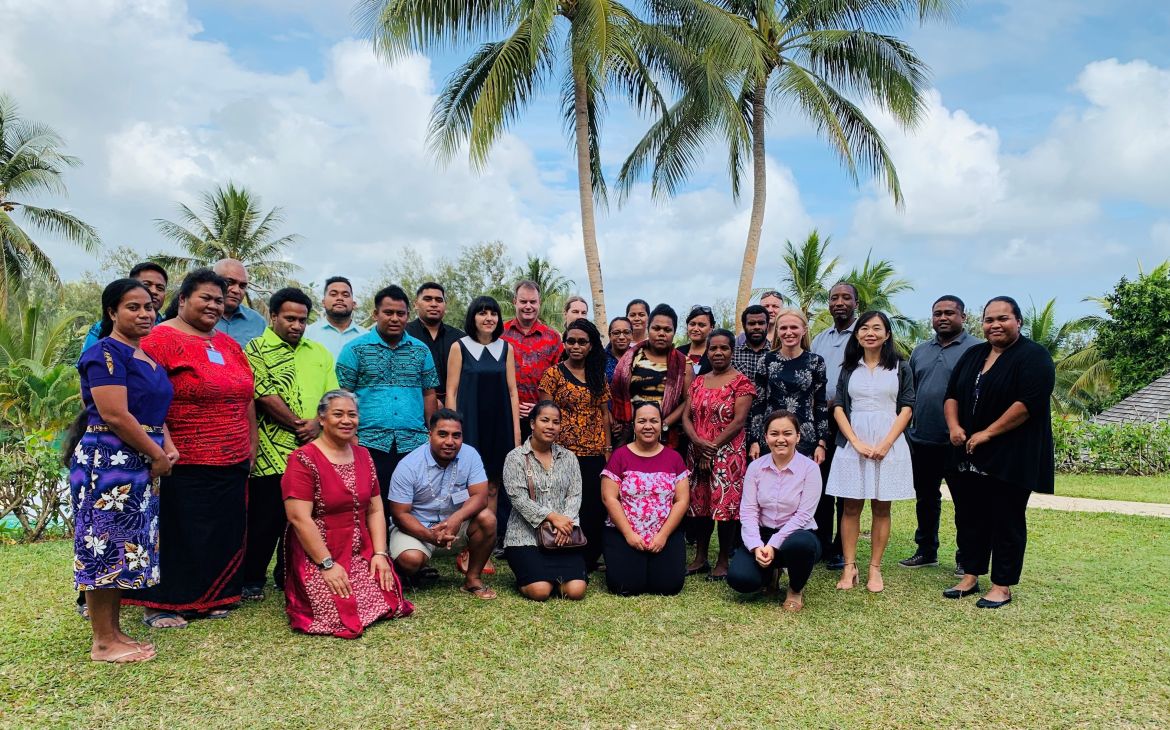Compiling 232 global indicators is a daunting challenge for all countries but it is even more so for Small Island Developing States. Often with just a few staff, their National Statistical Offices are overstretched. Same persons are called to do the field work, process data and ensure the management of statistical activities. While the scope of the SDG-related data needs is huge, the global goals are about national ownership. Each country is given an opportunity to identify which SDG indicators can best support national processes and which ones are most urgent for its people’s wellbeing and environment.
To support 14 SIDS in Asia-Pacific in this endeavour, UNITAR has teamed up with the Secretariat of the Pacific Community, ESCAP, UN Statistics Division and several custodian agencies to address data needs identified based on the participating countries’ feedback obtained through a preliminary survey. The measurement of poverty, health, gender issues as well as the compilation of indicators requiring the use of financial, budgetary or remittance-related information came up as key priorities. UNITAR and Partner Organizations have conducted 2 workshops from 19 to 20 September and from 23 to 25 September in Port Vila, Vanuatu, and Nadi, Fiji, to address these data issues and support the SIDS of the region in monitoring and reporting on SDGs. 46 government officials - 21 men and 25 women - from NSOs and other government agencies such as those working with national health information systems and financial and budgetary information attended the workshops. More than 90% of the workshop participants confirmed an increase in their knowledge of the approaches and methodologies for compiling national indicators for SDGs.
Understanding the importance of fit-for-purpose data and how they can best inform sound policy decisions is a critical factor of success for any country. A strong dialogue between the technical community of data producers and the policy-makers is required. As noted by one of the countries, “We now ask our data users what kind of information they need and update our survey questionnaires accordingly instead of asking data users to send questions”.
The two workshops have helped to address some of these needs by strengthening the capacities of participants to streamline and contextualize SDG monitoring and reporting, use the metadata as an indispensable tool, leverage “new” and administrative data, and to compile selected indicators drawing on technical contributions by several custodian organizations such as World Bank, WHO, UN Women, IMF, as well as UNSD, Secretariat of the Pacific Community, ESCAP and UNITAR.
Equally important, however, was the fact that the workshops have provided a valuable space for sharing good practices among countries. Samoa, for example, has presented its work on mapping SDG indicators to national processes and data sources. Several countries talked about their approaches and challenges faced when it comes to poverty measurement, both monetary and non-monetary. Tonga, for example, has introduced an innovative methodology using a combination of monetary approach with hardship data collected based on the nationally constructed definition of multidimensional poverty or hardship using 3 age groups and collecting relevant data through their Household Income and Expenditure Survey (HEIS). Another example is Fiji whose acting head statistician talked about Fiji’s collaboration with NGOs to strengthen data production in certain areas, as well as the expansion of agreements with various Ministries to further increase access to administrative data.
The workshops provided a valuable source of information on needs that could be addressed through online learning to be delivered later this year and the good practices to be shared across the region. This second component of blended learning on monitoring SDGs builds on the work initiated earlier this year by UNITAR in partnership with UNSD, SPC and ESCAP in support of improved data planning and governance. The two components constitute the bulk of the training programme funded by the Government of Italy and aimed at strengthening the statistical capacities of SIDS n the Asia-Pacific region. The programme has been key in addressing the needs of the countries that have significant statistical capacity constraints but are among the first ones to be affected by the future of the 2030 Agenda.




